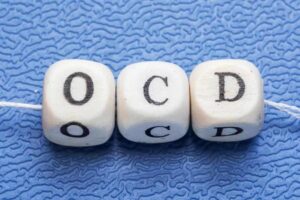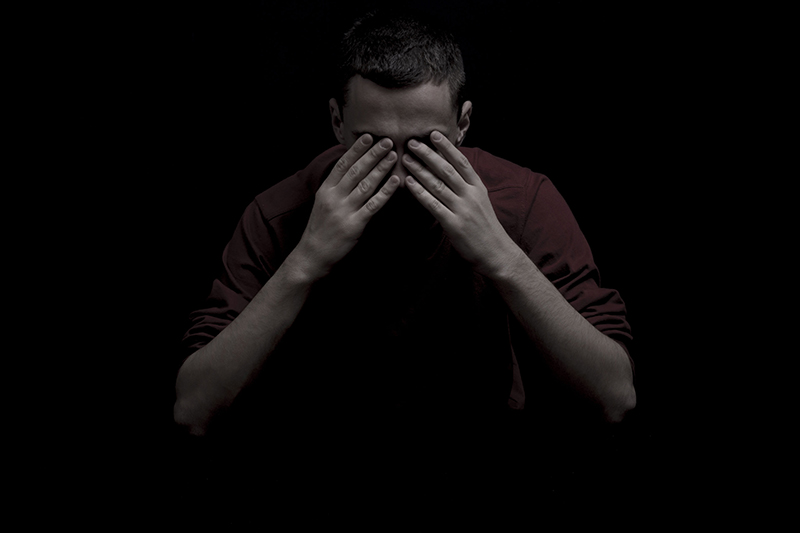Obsessive-Compulsive Disorder (OCD) is often misunderstood as a condition of neatness or quirkiness, but for those experiencing it, OCD is a serious and challenging disorder. A less frequently discussed aspect of OCD involves impulse control issues, where individuals feel compelled to act on intrusive thoughts despite their distressing nature. This blog aims to shed light on the intersection of OCD and impulse control and provide practical strategies for managing OCD impulse control.
Contents
Does OCD Affect Impulse Control?
 Yes, OCD can affect impulse control, though the relationship between the two is somewhat complex. Obsessive-Compulsive Disorder (OCD) is primarily characterized by obsessions (intrusive, unwanted thoughts that trigger anxiety). And compulsions (repetitive behaviors or mental acts that a person feels driven to perform in response to an obsession or according to rigid rules).
Yes, OCD can affect impulse control, though the relationship between the two is somewhat complex. Obsessive-Compulsive Disorder (OCD) is primarily characterized by obsessions (intrusive, unwanted thoughts that trigger anxiety). And compulsions (repetitive behaviors or mental acts that a person feels driven to perform in response to an obsession or according to rigid rules).
While these compulsions may appear as impulsive behaviors, they are generally ritualistic responses intended to manage the anxiety caused by obsessions, rather than impulsive actions typical of impulse control disorders.
However, the underlying anxiety and stress from OCD can impair a person’s overall self-regulatory capacities, including impulse control. This means that while the compulsions themselves are not impulsive actions in the traditional sense, the stress and cognitive overload caused by OCD can make it harder for someone to regulate their impulses in other areas of life.
Thus, while OCD is not a disorder of impulse control per se, its symptoms and effects can complicate how impulses are managed and experienced.
What Are The Examples Of OCD Impulse Control?
OCD and impulse control issues can intertwine in complex ways. Here are some examples where OCD symptoms might resemble or affect impulse control:
- Checking Compulsions: This involves repeatedly checking things (like locks, appliances, and emails) to prevent an unlikely catastrophe. The individual feels a strong urge to perform these checks, even though they know it’s irrational or excessive.
- Hoarding: People with hoarding compulsions feel an intense urge to keep items others may view as worthless. They may impulsively acquire more items to avoid distress linked to discarding them.
- Ordering and Arranging: This refers to compulsions involving the need to arrange objects in a particular way. Individuals may feel an unstoppable impulse to order things until they feel “just right,” which can be time-consuming and interfere with daily functioning.
- Contamination Fears: These fears can lead to compulsive washing and cleaning. The person may feel a strong, uncontrollable urge to clean themselves or their surroundings repeatedly to alleviate anxiety about contamination. Even if this behavior seems excessive to others.
- Harm Avoidance: This includes compulsions driven by the fear of harming oneself or others, even if there is no desire to do so. The person might feel compelled to perform certain rituals to prevent this feared harm, experiencing these urges as difficult to control.
- Confession Compulsions: Some individuals feel an overwhelming urge to confess thoughts or actions they believe are wrong or inappropriate to avoid potential harm or to relieve guilt. Even if the confessions are unnecessary or disproportionate to the situation.
In all these cases, while the actions may appear impulsive, they are typically driven by an underlying obsession. The compulsive behaviors are intended to reduce anxiety caused by these obsessions, even though they may be highly disruptive or illogical.
How Do You Stop OCD Impulse Control?
 Managing and stopping OCD impulse control involves a combination of therapeutic strategies, lifestyle adjustments, and sometimes medication. Here are some effective approaches:
Managing and stopping OCD impulse control involves a combination of therapeutic strategies, lifestyle adjustments, and sometimes medication. Here are some effective approaches:
Cognitive Behavioral Therapy (CBT)
A specific form of CBT, called Exposure and Response Prevention (ERP), is particularly effective for OCD. In ERP, patients are gradually exposed to fear-inducing objects or ideas and taught to resist the urge to perform their usual compulsive behaviors.
This helps to reduce the anxiety associated with these cues over time. Another aspect, Cognitive Therapy, targets the irrational beliefs that underlie obsessive thoughts. And, helping individuals to challenge and change these thoughts.
Medication
Medications can play a crucial role in managing OCD, particularly when symptoms are severe. Selective Serotonin Reuptake Inhibitors (SSRIs) such as fluoxetine, sertraline, and paroxetine are the most commonly prescribed medications for OCD and work by increasing the levels of serotonin in the brain. This can help reduce both obsessive thoughts and compulsive behaviors.
Mindfulness and Stress Reduction
Mindfulness involves focusing on the present moment while calmly acknowledging and accepting one’s feelings, thoughts, and bodily sensations. It’s particularly useful for managing OCD as it teaches patients to observe their obsessive thoughts without engaging in compulsive behavior. Techniques like yoga, meditation, and progressive muscle relaxation can also help lower the overall stress and anxiety levels.
Behavioral Techniques
Behavioral techniques such as Habit Reversal Training involve identifying the compulsive behavior and replacing it with a more constructive activity. This method can be particularly effective when the compulsion involves physical behaviors like washing or checking.
Another useful approach is to practice delaying the compulsion. Initially, this might be for just a few minutes, but over time, the delay can be extended. This often reduces the urge’s power or even eliminates the desire to perform the compulsion altogether.
Support Groups and Peer Support
Support groups provide a platform for individuals with OCD to share their experiences and coping strategies in a supportive environment. This peer support can reduce feelings of isolation and stigma, while also providing motivation and practical tips for managing the disorder. These groups can be found both in-person and online, offering accessibility to those who might not have local resources.
Lifestyle Changes
Adopting a healthy lifestyle can have a significant impact on the severity of OCD symptoms. Regular physical exercise is known to reduce anxiety and improve mood, while a balanced diet can stabilize energy levels and improve overall health. Ensuring sufficient sleep and minimizing the use of alcohol and drugs is also crucial, as fatigue and substances can exacerbate OCD symptoms.
Professional Help
Regularly consulting with a psychologist, psychiatrist, or other mental health professionals who specialize in anxiety disorders is essential. These experts can offer a diagnosis, monitor progress, and make necessary adjustments to the treatment plan. They can also provide support for individuals to navigate the challenges of OCD and offer guidance on integrating various treatments effectively.
Together, these approaches offer a comprehensive strategy for managing OCD impulse control issues. Ultimately, aiming for a balanced and sustained improvement in quality of life.
Can You Ignore OCD Urges?
 Ignoring OCD urges, or attempting to simply suppress them without any therapeutic techniques, can be quite challenging. Also, often counterproductive for those suffering from OCD. The nature of OCD involves intrusive, persistent thoughts and compulsions that the sufferer feels an overwhelming need to perform to alleviate anxiety or prevent perceived disasters.
Ignoring OCD urges, or attempting to simply suppress them without any therapeutic techniques, can be quite challenging. Also, often counterproductive for those suffering from OCD. The nature of OCD involves intrusive, persistent thoughts and compulsions that the sufferer feels an overwhelming need to perform to alleviate anxiety or prevent perceived disasters.
Directly trying to ignore these urges can increase stress and anxiety. And, leading to an intensification of the symptoms. The intrusive thoughts become more persistent when they are actively resisted without proper psychological strategies.
However, with appropriate treatment strategies, individuals can learn to manage their responses to these urges effectively. Over time, this can reduce the intensity and frequency of the urges. Mindfulness and acceptance-based interventions also help by teaching individuals to acknowledge their thoughts and feelings without judgment.
Conclusion
In conclusion, managing OCD impulse control issues requires a multifaceted approach that includes cognitive-behavioral therapy, specifically exposure and response prevention, medication, and lifestyle changes. These methods help individuals cope with their urges. Also, reduce their severity over time. Support from professionals and peers alike plays a crucial role in recovery.
For more information and guidance, please contact MantraCare. OCD is a mental health disorder characterized by obsessions and compulsions. If you have any queries regarding Online OCD Counseling experienced therapists at MantraCare can help: Book a trial OCD therapy session


